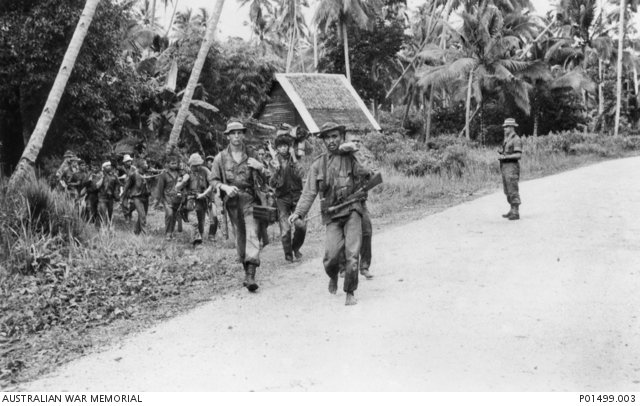On this day, 10 November 1964, Robert Menzies announces that he is reintroducing national service in an effort to increase Australia’s troop numbers at a time of immense geopolitical turmoil. All 20-year-old males will be required to register for a birthdate lottery, with those whose numbers are called forced to serve two-years full-time, during which they could be sent overseas, followed by three years in the Army Reserve.
The decision comes in the aftermath of the ‘Gulf of Tonkin Incident’, where the American destroyer the USS Maddox had been attacked by North Vietnamese forces, resulting in a major escalation of the American involvement in Vietnam. But Menzies was arguably more focused on tensions between Indonesia and the new grouping of ‘Malaysia’ which threatened to drag Australia into a war with our immense northern neighbour. On 30 October Menzies had informed the House of Representatives that a landing of 60 Indonesian raiders on the Malayan coast had seen Australian soldiers in combat with Indonesian troops for the first time.
Australia was still technically ‘at peace’ when national service was introduced. While Menzies had already committed military advisors to South Vietnam, the full military commitment that is intimately associated with the conscription issue in the popular memory would not come until 29 April 1965. However, the Indonesian situation, and the ‘domino theory’ implications of South Vietnam falling into communist hands, appeared to constitute a rather immediate existential threat to the nation.
Australia had a long history of national service stretching back to the first Federal Parliament which had passed the Defence Act of 1903. However, this conscription power had been based on the necessity to directly defend the country and hence did not cover overseas service. The attempt to introduce overseas service had been the subject of the two bitter conscription ‘referendums’ (technically plebiscites) of the First World War, while even during the dark days of the Second World War when Australia faced a real possibility of invasion, there were strict rules governing where conscripted troops could and could not be sent.
It is worth noting that Menzies had called on Curtin to lift those restrictions, and had even formed a splinter group of the UAP Opposition known as the ‘national service group’ to lobby the issue. In breaking the overseas conscription taboo in 1964, he argued that ‘the main object of any defence policy was to keep the enemy out of your country and as far away as possible’.
The Labor Party had split over the overseas conscription issue during the Great War, and it could be trusted to defend the distinction as an article of faith. The Leader of the Opposition Arthur Calwell insisted that he was ‘absolutely and utterly opposed conscription of young Australians for overseas service in peacetime’. He also criticised the ‘lottery of death’ system of selection as amounting to a game of ‘Russian roulette’.
Despite this criticism, conscription was popular in significant sections of the press, who were critical of the government for not committing enough to defence. Menzies wanted to silence these critics ahead of the upcoming half-Senate election of 5 December. That election seemed to indicate that the electorate approved of conscription, as the Coalition out-polled Labor, and another 8% of the vote went to the fiercely anti-communist Democratic Labor Party.
Part of the reason why conscription was deemed to be necessary was because of Menzies’s economic success. With ‘full employment’ and tremendous prosperity it was harder to convince potential recruits to join the armed services, and one of the reasons why Labor did poorly at the election was that it failed to offer a viable alternative to conscription in strengthening Australia’s forces, which it agreed needed to be strengthened.
Despite this pressing defensive necessity, a student protest which called upon the government to ‘give the youth of Australia today the choice Sir Robert had in 1916’ made a valid and compelling point. Menzies’s family had famously barred him from joining the Great War as the family had already committed its elder sons. No such exemption on family grounds would be included in this new legislation, which would compel young Australians to risks their lives against their own will. Even with the electoral backing, this was democratic majoritarianism of a brutal kind.
Further Reading:
A.W. Martin, Robert Menzies, A Life Volume 2 1944-1978 (Melbourne University Press, 1999).
Peter Dennis et al., The Oxford Companion to Australian Military History, (Oxford University Press, 1995).
Sue Langford, ‘Appendix: The national service scheme, 1964-72’, https://www.awm.gov.au/articles/encyclopedia/viet_app
Sign up to our newsletter
Sign up for our monthly newsletter to hear the latest news and receive information about upcoming events.


